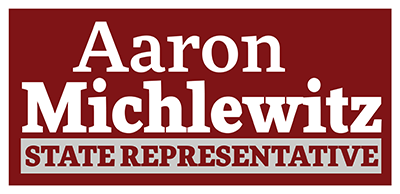BOSTON — A $1.1 billion budget bill is on its way to the Senate after the House passed the legislation Wednesday and added on an additional $17.5 million in COVID-19 spending.
Passage of the legislation comes as Gov. Charlie Baker has poked lawmakers to quickly get it to his desk so that the state can take advantage of federal reimbursements for costs related to the respiratory virus. The House approved the bill on a 158-0 vote.
Before the vote, Ways and Means Chairman Rep. Aaron Michlewitz laid out for representatives what the $1.1 billion COVID-19 spending bill entails.
“Today we are taking one step closer and helping relieve the financial burden that COVID-19 has inflicted while also helping some prepare for the coming months, as the virus continues to inflict pain and with a vaccine still a ways away from being a reality,” he said.
The chairman said the bill includes $350 million for personal protective equipment, $139 million in increased rates and add-ons for human service providers, $93 million for human service provider incentive pay, $85 million for field hospitals and shelters, $44 million for contact tracing efforts, and more funding for child care providers, food security programs, emergency housing, and “a dedicated fund to address statewide efforts on racial disparities in COVID health care access.”
“Collectively, these pieces represent a broad range of items that will help a wide variety of people and organizations that have been disproportionately affected by the COVID-19 outbreak,” Michlewitz said.
Rep. Christine Barber, who participated in the session by phone Wednesday, thanked the speaker and Ways and Means chairman for dedicating money in the bill to the Health Care for All helpline, which helps people enroll for health care. She said the helpline fields more than 20,000 calls each year, half of which are in Spanish or Portuguese.
“As you can imagine, since COVID-19 calls to the helpline have increased exponentially as thousands of people are in need of health care for the first time,” Barber said. “I know many of us have relied on the helpline to aid our constituents, and the funding in this bill helps to increase the capacity to help people who lost their job and their employer-sponsored coverage and need help finding insurance coverage for the first time. They’re helping people who have never had coverage but because of the crisis are now trying to enroll.”
Rep. Tricia Farley-Bouvier filed an unsuccessful amendment that would have directed the commissioner of revenue to send stimulus checks to state residents who file taxes using an Individual Taxpayer Identification Number. People who have an ITIN are disqualified from receiving unemployment benefits and stimulus checks from the CARES Act. There was no direct vote on the amendment, and it was dispensed with in a larger amendment.
The Pittsfield Democrat’s amendment would have sent qualified ITIN taxpayers $1,200 if filing individually or $2,400 if filing jointly, with an additional $500 for each dependent. Farley-Bouvier said if a U.S. citizen files their taxes with someone who is an ITIN holder, they and their children will become ineligible for unemployment benefits and stimulus checks.
“It’s cruel and it’s stupid,” she told the News Service after the session ended. “The issue of how we treat immigrants justly and fairly and how their wellbeing is connected to the rest of the commonwealth’s being is a conversation that needs to keep happening.”
Michlewitz said it was important for the House to pass the bill Wednesday to secure Massachusetts’ place in line for federal reimbursement of COVID-related costs.
“As the federal government is inundated with reimbursement requests, it is vital that we maximize our options and take advantage of the FEMA funds while we can. That is why it is so critical that we pass this today and get it closer to the governor’s desk, so that we do not fall far behind other states in the race for federal reimbursement,” Michlewitz said.
Last week, the governor prodded lawmakers to act on the supplemental budget bill he filed in May, saying that “the clock’s ticking” and his administration cannot seek money from available federal pools to cover COVID-related expenses until the Legislature finalizes the bill.
The federal funding will also help Massachusetts deal with the budgetary abyss it faces for fiscal 2021, which will start July 1 with a temporary budget in place while lawmakers try to figure out how to budget for the next year now that a recession has washed over the state.
“Our continued struggle with the Commonwealth fiscal outlook, creating so much uncertainty, makes it even more important to use these federal funds in a timely manner so our most vulnerable population can take advantage of it,” Michlewitz said Wednesday.
Separately Wednesday, Michlewitz told the News Service that the House Ways and Means Committee will not have a full-year budget proposal ready by July 1, the deadline given to the committee in a set of emergency rules adopted by the House in May.
***This Article was published by Colin Young and Chris Van Bushkirk of State House News Service on 6/25/2020***
